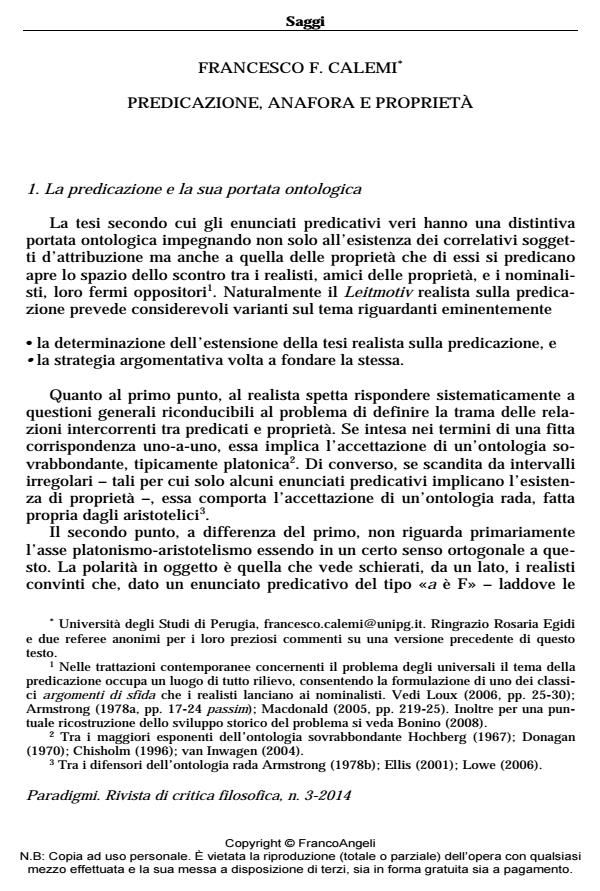Predicazione, anafora e proprietà
Titolo Rivista PARADIGMI
Autori/Curatori Francesco F. Calemi
Anno di pubblicazione 2015 Fascicolo 2014/3
Lingua Italiano Numero pagine 18 P. 125-142 Dimensione file 72 KB
DOI 10.3280/PARA2014-003009
Il DOI è il codice a barre della proprietà intellettuale: per saperne di più
clicca qui
Qui sotto puoi vedere in anteprima la prima pagina di questo articolo.
Se questo articolo ti interessa, lo puoi acquistare (e scaricare in formato pdf) seguendo le facili indicazioni per acquistare il download credit. Acquista Download Credits per scaricare questo Articolo in formato PDF

FrancoAngeli è membro della Publishers International Linking Association, Inc (PILA)associazione indipendente e non profit per facilitare (attraverso i servizi tecnologici implementati da CrossRef.org) l’accesso degli studiosi ai contenuti digitali nelle pubblicazioni professionali e scientifiche
Molti esponenti della scuola realista e di quella nominalista, sulla scorta di una specifica interpretazione della natura del dibattito attorno all’esistenza delle proprietà, concordano che enunciati predicativi del tipo «a è F» - laddove le lettere schematiche «a» e «F» sostituiscono, rispettivamente, il nome di un individuo particolare e un termine generale - non impegnino per se stessi all’esistenza di proprietà. Dopo aver considerato le principali varianti delle strategie ontologiche realiste e nominaliste che si basano su questo assunto, l’Autore le mette in discussione e ne evidenzia l’infondatezza sulla base di una precisa istanza che si vedrà emergere in relazione al fenomeno denominato "anomalia anaforica".
Parole chiave:Anafora, nominalismo, predicazione, realismo, riferimento astratto, universali
Francesco F. Calemi, Predicazione, anafora e proprietà in "PARADIGMI" 3/2014, pp 125-142, DOI: 10.3280/PARA2014-003009